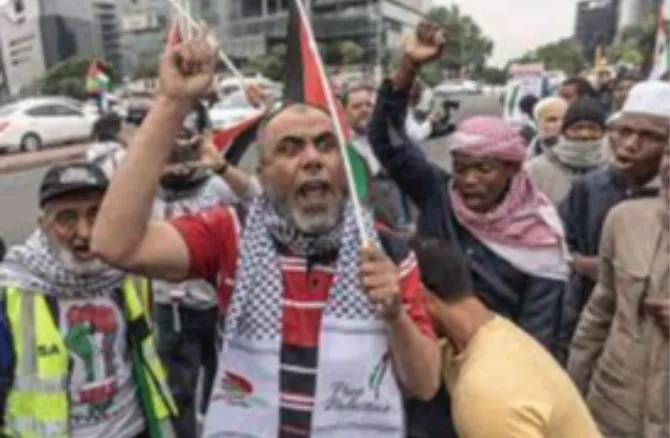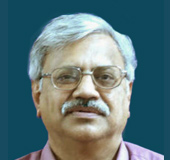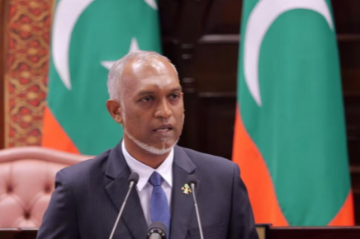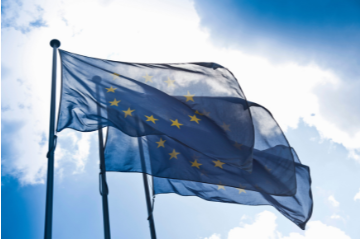
In the ongoing Israel-Hamas conflict, nearly 1,400 Israelis were killed in an unprecedented attack by Hamas on 7 October 2023. Israel’s retaliation against Hamas saw the death of 10,000 Palestinians. Owing to the magnitude of violence, replete with cruelties inflicted on children and civilians, this protracted war is challenging the notion of humanitarian law and human rights. Akin to the Russia-Ukraine conflict, the Israel-Palestine conflict has left Africa divided. Before analysing their diverse attitudes towards the conflict, it would be essential to make a few preliminary observations.
Preliminary observations
Although many African countries had severed their diplomatic ties with Israel after the Arab-Israel War of 1973, presently, at least 30 African states have embassies or consulates in Tel Aviv and 44 out of 54 African states officially recognise the state of Israel. Clearly, Israel is not struggling to obtain de jure recognition in Africa. Moreover, Israel has already spread a network of ties with African countries that are mutually beneficial. Such ties entail the sharing of Israeli agricultural technology with African countries that have arid and semi-arid land. Similarly, Israel has offered aid to bolster security-related infrastructure to states in Africa. In the domain of religion and culture, the Holy City of Jerusalem attracts people of varying faiths—Christianity, Judaism and Islam—from all across the world, especially Africa. Currently, the regional organisation, African Union (AU), and most of the African states have stood for immediate cessation of hostilities between Israel and Hamas and resumption of dialogue to restore peace and normalcy. However, such outward postures do not reflect underlying complexities that have been shaping the attitudes of African states towards both Palestine and Israel.
States with pro-Israel stance
Among the Sub-Saharan African states, Kenya, Ghana, The Republic of Congo (DRC,) and Rwanda instantly condemned the assault by the Hamas. Kenya’s pro-Israel stand can be explained with reference to its ties with the United States (US). Kenya is strategically located in the Western Indian Ocean Region and the US has cultivated close ties with Kenya since 1964. During the Cold War, the US was using Kenya as a bastion to fight communism in East Africa. In August 1998, when al-Qaeda bombed American embassies in Nairobi (Kenya) and Dar es Salaam (Tanzania), killing more than 200 people, Israel helped Kenya perform rescue operations. The goal of fighting radical Islamist terrorism binds the US-Israel and Kenya. The US has also provided weapons to Kenya to contain Al Shabaab—a Somali-based radical Islamist outfit connected to Al Qaeda—that has been active in Eastern Africa. Like Kenya, other African countries have also established close ties with Israel. Ghana was the first African country to establish diplomatic ties with Israel after its independence in 1957. After the Arab-Israel War, these ties were severed but Ghana succeeded in rekindling them soon after. Similarly, DRC and Rwanda, too, have established diplomatic ties with Israel.
Within the North African region, Morocco has been at the forefront of normalising ties with Israel. Owing to the US mediation, Morocco established formal diplomatic relations with Israel in December 2020. The US had already recognised Morocco’s sovereignty over the Western Sahara. Likewise, as the ties between Morocco and Israel began to bloom, Israel also recognised Moroccan sovereignty over Western Sahara in July 2023. In turn, Morocco was supposed to host Israel’s Prime Minister Netanyahu at the end of 2023. Indeed, for Morocco’s benefit, the US and Israel refused to take cognisance of the Saharwi Arab Democratic Republic (SADR) established under the POLISARIO front in the Western Sahara. Morocco and Israel began to strengthen their security partnership through drones, tanks, and even spyware after 2020. Besides, 40 percent of Morocco’s population is engaged in agriculture and struggling with droughts and famines. To acquire water security, Morocco also thought it prudent to befriend Israel which has built innovative strategies in the realm of agricultural technology.
Despite the growing US-Israel and Morocco ties, the relentless Israeli attacks in the territory of Hamas, especially against the civilian population in places like hospitals, triggered protests in North Africa against Israeli aggression. In Rabat, diverse segments of the population took to the streets to protest against Israel’s excesses. The mass protests in Morocco are also demanding the annulment of the December 2020 agreement between the two countries. Thus, irrespective of the political deftness of King Mohammad the VI of Morocco, the ties between Israel and Morocco have received a major setback. Morocco is getting internally divided where Islamist Justice and Development Party has hailed the Hamas attack against Israel as a heroic act. Like Israel, Palestine also has been garnering support among the states in Africa.
Despite the growing US-Israel and Morocco ties, the relentless Israeli attacks in the territory of Hamas, especially against the civilian population in places like hospitals, triggered protests in North Africa against Israeli aggression.
States with pro-Palestine stance
Algeria, a member of the League of Arab States and Morocco’s arch-rival in North Africa has reiterated its anti-Zionist stand and unequivocally supported the Palestinian people’s quest to establish a state for themselves. Similarly, Tunisian President Kais Saied has accused Israel of crimes of genocide and Egyptian President Abdel Fattah al Sisi is exploiting the public anger against Israel to divert people’s attention from the activities of the Opposition parties that are trying to topple his regime.
Among the African states, South Africa has taken a strong stand against Israel. Nelson Mandela famously asserted in 1997 that the freedom of South Africa would be incomplete without the freedom of Palestinians. He had close personal ties with Fidel Castro, Yasser Arafat, and Muammar Gaddafi who worked towards a homeland for Palestinians. President Cyril Ramaphosa has held that the history of Palestine has echoes of the anti-apartheid struggle against the white minority regime in South Africa. The South African Minister for International Relations and Cooperation, Naledi Pandor, has gone as far as to request the United Nations (UN) to declare Israel as an apartheid state. South Africa has recalled its ambassador and diplomatic mission from Israel and condemned Israel’s bombardment of the Gaza Strip as “genocide”. It also declared that the existence of Israeli diplomats is no longer tenable in Pretoria. In fact, given its success in bringing about a negotiated settlement in Northern Ireland, South Africa has offered to mediate between the contending parties to resolve the Palestinian issue.
Among the African states, South Africa has taken a strong stand against Israel. Nelson Mandela famously asserted in 1997 that the freedom of South Africa would be incomplete without the freedom of Palestinians.
However, South Africa too is internally divided over the question of Palestine. Organisations including the Jewish Board of Deputies, the South African Zionist Federation, and the principal opposition party, namely the Democratic Alliance (DA) are opposing the official policies. They contend that by asking Israel’s diplomats to quit Pretoria, South Africa would not be able to resolve the problem. Besides, and paradoxically, even if South Africa is the bitterest critic of Israel, it is also the biggest trading partner of the latter in Africa with trade worth US$750 million in 2021.
Neutral states
Nigeria is one of the few African states that has chosen to remain neutral towards the conflict although it has called for immediate cessation of hostilities. Similarly, Uganda is neutral but President Museveni personally supports the two-state solution.
Nigeria is one of the few African states that has chosen to remain neutral towards the conflict although it has called for immediate cessation of hostilities.
Furthermore, in a bid to cultivate states from the Red Sea, Israel has offered humanitarian assistance to Jewish Ethiopians. The Red Sea is strategically significant for Israel because one-quarter is located on the Gulf of Aqaba, an inlet of the Red Sea. Israel is almost compelled to engage with countries of the Red Sea region like Jordan, Egypt, Saudi Arabia, Yemen, Sudan, Eritrea and Djibouti. In this context, Israel has to be watchful about the developments in the Suez Canal, Eilat, and the Gulf of Aden.
Moreover, in its mission to befriend Africa, Israel had momentarily succeeded in getting observer status in the AU in 2021, although the AU withdrew that status due to protests from Algeria. In contrast, Palestine enjoys observer status in the AU.
Conclusion
The Hamas-Israel conflict has revealed attitudinal divisions in Africa. The states are divided among themselves and some countries such as Morocco and South Africa are divided internally on this issue. Geopolitical, economic, and technological considerations coupled with the requirements of politico-diplomatic expediency have cumulatively shaped the policies of African states towards the conflict.
Rajen Harshé is a founder and former Vice Chancellor of the Central University of Allahabad Prayagraj and former President of the G.B. Pant Social Science Institute.
The views expressed above belong to the author(s). ORF research and analyses now available on Telegram! Click here to access our curated content — blogs, longforms and interviews.




 PREV
PREV


